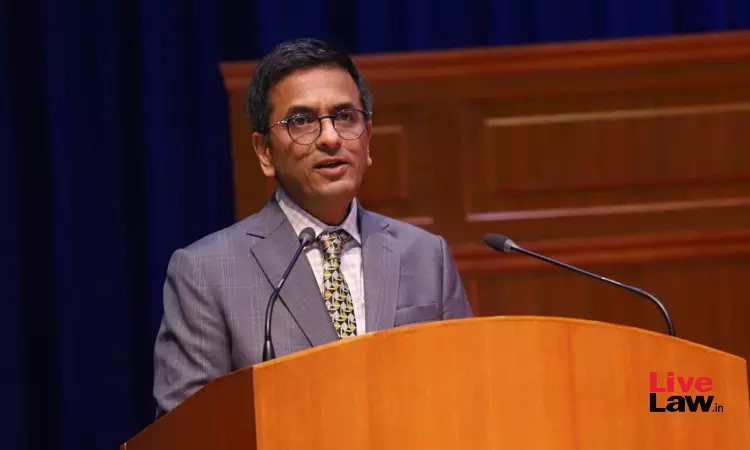CJI DY Chandrachud Expresses Concern At Selective Quoting Of Judges' Speeches & Judgments By Journalists
Awstika Das
23 March 2023 9:15 AM IST

Next Story
23 March 2023 9:15 AM IST
The Chief Justice of India on Wednesday raised alarm about the ‘selective’ quoting' of judges’ speeches and judgements by the media leading to a distorted public understanding of important legal issues. While noting the rise in legal journalism and the increasing interest in stories emerging from the court halls, the chief justice expressed concerns about ‘one-sided’ reporting...
